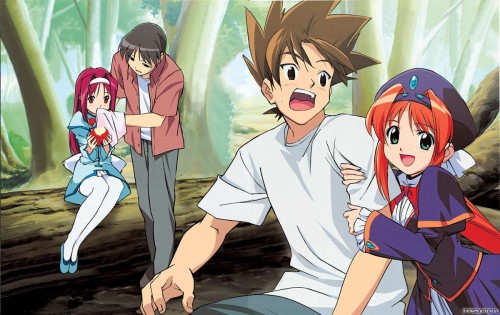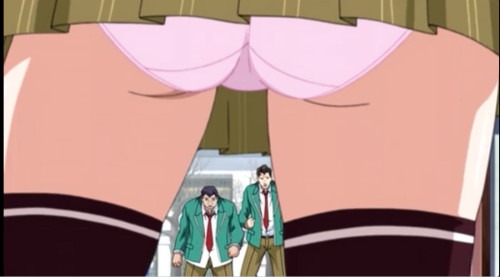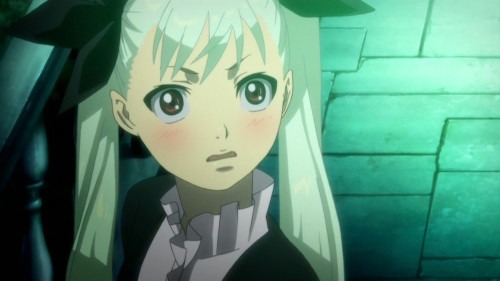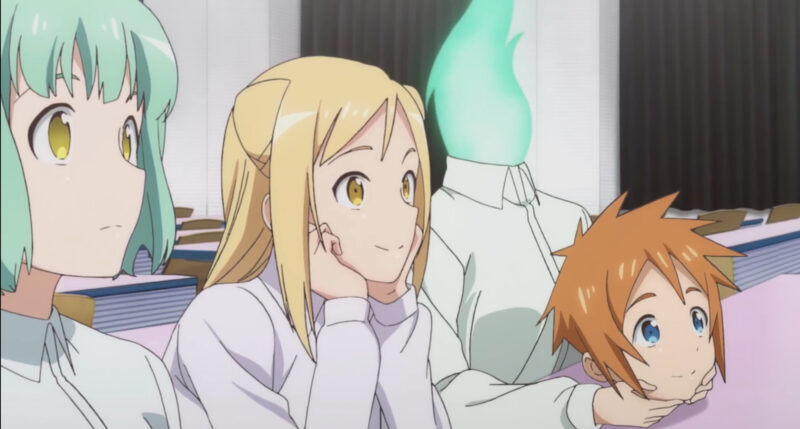
Interviews with Monster Girls follows a biology teacher named Tetsuo Takahashi as he teaches three demi (or demi-human) high-school girls. He also tries to understand them better, including the problems they face as teens and as demis. Demi-humans are a protected minority in the society of the anime. Tetsuo quickly becomes a guardian for the three girls: Hikari, Kyoko, and Yuki.
Hikari is a vampire with far too much energy. Like other vampires, she drinks blood packs sent by the government, but she also enjoys substitutes like tomato juice. Contrary to the stories, she loves garlic and dislikes bright lights and heat. She sunburns easily, but loves a good pool party. Her sisters are human, and she uses one of them as something of a chew toy when her vampire fangs itch.
Kyoko is a dullahan–think of the Headless Horseman. Dullahans have their heads separated from their bodies. She is able to control her body from a fair distance, saying it is akin to playing a video game. She is shy and yearns for contact from others, which is difficult when she always has to carry her head around.
Yuki is a snow woman. Her body is always cold, and she can freeze the air when she is sad. She dislikes being a demi and fears she can freeze people until Tetsuo shows all she can freeze are her tears and sweat. Hikari enjoys hugging Yuki in order to cool off during the summer.
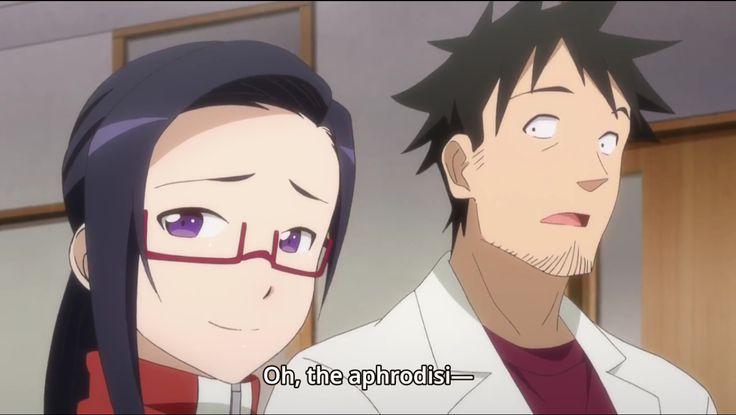
Finally, Tetsuo’s fellow teacher, Sakie, is a succubus. Her body exudes aphrodisiacs, forcing her to dress in neck to ankle clothes in order to avoid accidentally seducing men and other male students. When she sleeps, she can give people near her erotic dreams. Because of this, she lives apart from people. She develops feelings for Tetsuo after she comes to believe he is immune to her aphrodisiac effects. She worries she cannot establish a true relationship–love for who she is–because of her nature.
Most of the anime explores the different challenges the demis face because of their natures. It remains lighthearted but hints at how difficult being different can be. The demis tend to keep together because of their shared challenges and the reaction humans tend to have toward them. Although, some of that reaction is curiosity similar to Tetsuo’s. The demi-human world and traits, along with how Tetsuo examines the stories that reference demi-humans (such as Dracula and the Headless Horseman) is interesting for a folklore nerd like me. Although some of the anime’s scenes would have ended Tetsuo’s teaching career, such as a scene where he comments about seeing Hikari’s underwear. Mild fan service like body pans are still in this series, so it doesn’t completely avoid the usual tropes.
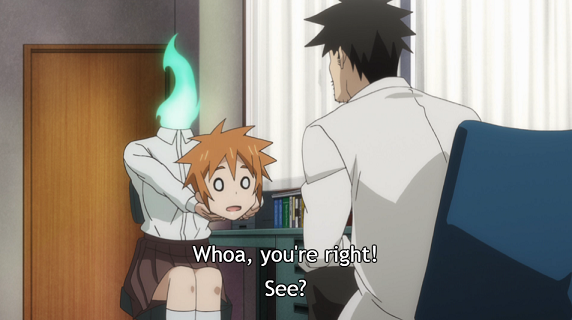
Thankfully, the anime stays away from such things for the most part. It remains focused on the details of living with such strange bodies and how society has reacted to people like the girls. It avoid falling into fan service and the usual fetishes anime likes to fall into.
The relationship between Sakie and Tetsuo feels mature. The concerns Sakie raises about her nature are interesting to consider. How could you develop a meaningful relationship when even the most modest exposure of skin can release overwhelmingly powerful pheromones? Tetsuo uses his knowledge of succubus to hide and somewhat counter the effects. He is effected, but he is a good man who doesn’t allow himself to be controlled by their effects. As the anime progresses, he seems to build a bit of an immunity. He can be around Sakie (with some effort) when she is exposing a moderate amount of skin. Most anime would fall into fan service, lustiness, and low-functioning behavior at this point.
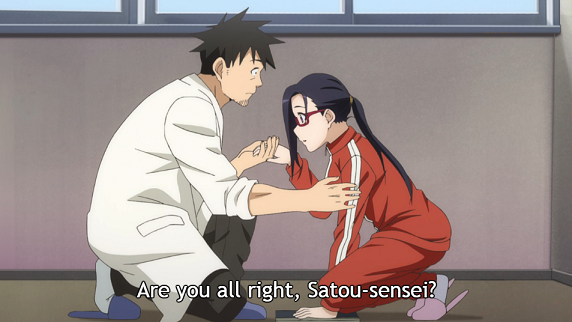
Interviews with Monster Girls is refreshing and charming with its focus on world building and character development instead of focusing on monster girl fetishes. It touches on difficulties people have with being different, and how those differences can effect friendships and romances. The three girls are fun characters and have great dynamics. Sakie offers a look at what it would mean to be a demi-human and try to function as normal as possible in society. Her species is usually unable to function, opting for total isolation or giving up and becoming something of a criminal element. I would find a deep dive into those elements quite interesting. Tetsuo also offers a refreshing character change from what has been trending in anime these last several years. He’s upright, kind, and reasoned. Interviews with Monster Girls manages to be funny without falling into low-brow sex and fetish jokes. While I know anime aims at teens, it can do better than the usual trashy comedy that offers nothing new–just look at the comedy of Kaguya-sama as an example of what anime can achieve. All in all, Monster Girls offers a lighthearted watch with a world that could be developed in many different ways.
